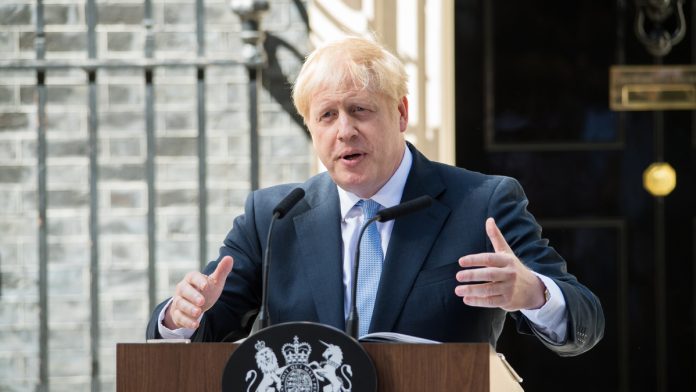The Pound plunged versus the Euro in the previous session as the UK prepared for lock down. The Pound versus Euro exchange rate tumble, hitting a nadir of €1.0649 before closing 0.9% lower at €1.0771. Despite the steep fall, the Pound stayed above last week’s 11 year low of €1.0523.
Today, at 06:30 UTC, GBP/EUR is trading +0.2% at €1.087 as investors look cautiously ahead to PMI readings from both the eurozone and the UK.
Pound Rebounds As Britain Locks Down
Last night Prime Minister Boris Johnson announced a lock down in UK. In the biggest ever restriction on public freedom, Boris Johnson bans people from leaving home except for food, medical treatment and daily exercise. The move effectively paralyses the UK economy. The Pound had been expecting the move, declining sharply across Monday.
Investors will now look towards the release of the manufacturing and service sector PMI’s. Analysts are expecting the figures to show the initial impact of coronavirus on the UK economy. Analysts are forecasting activity in the manufacturing sector will slump to 45 in March, down from 51.7 in February. The service sector, the dominant sector in the UK economy is expected to slump from 53.2 last month to 45. The figure 50 separates expansion from contraction.
Just as the UK economy was getting back on its feet after the decisive Conservative election in December following persistent Brexit uncertainty.
Eurozone Paves Way For Increased Fiscal Spending
The euro pushed higher on Monday despite Eurozone consumer confidence hitting a 5 year low. According to data from the European Commission consumer morale plummeted in March, giving the first glimpse of the economic impact that the measure to stop the spread of coronavirus are having.
The consumer confidence indicator fell a record 5 points to -11.6, its lowest level since 2014 and well below its long-term average. Consumers are fearful that they will lose their jobs after lock downs imposed by Italian, Spanish, French and German governments.
Euro investors are also reacting to the news the Eurozone finance ministers have agreed to activate the escape clause of the EU fiscal framework, for the first time. This means that countries are now allowed to temporarily deviate from the regular fiscal rules. Together with the previously announced ECB’s Pandemic Emergency Purchase Programme (PEPP), it paves the way for significant fiscal spending by national governments.
Investors will now turn to Eurozone PPMI data, which is expected to show a significant drop in activity.





